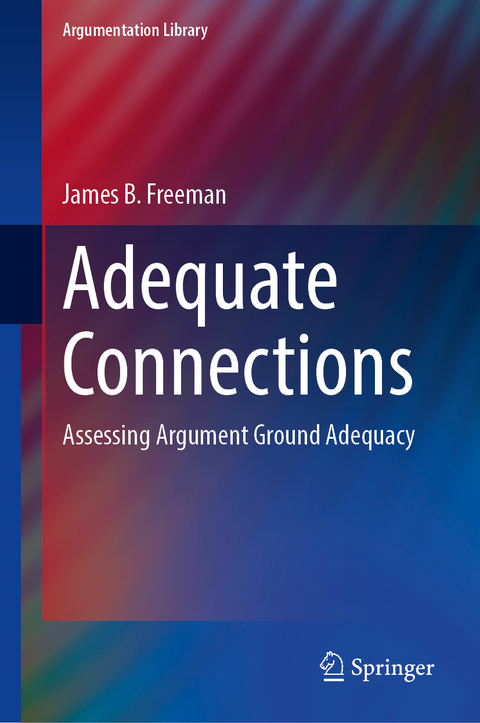
Adequate Connections
Springer International Publishing (Verlag)
978-3-031-76476-9 (ISBN)
- Noch nicht erschienen - erscheint am 29.01.2025
- Versandkostenfrei innerhalb Deutschlands
- Auch auf Rechnung
- Verfügbarkeit in der Filiale vor Ort prüfen
- Artikel merken
This book presents a comprehensive picture of when the premises of an argument are adequately connected to its conclusion. The author draws upon the familiar Toulmin model, Rescher's discussion of presumption and burden of proof, and L. Jonathan Cohen's presentation of the method of relevant variables.
The book first assesses the warrant or inference rule connecting the premises to the conclusion. To analyzes this, the author asks a series of questions such as - should the warrant be evaluated by conclusive or defeasible standards? Does the argument require that its premises, if acceptable, guarantee that the conclusion is acceptable also or does it allow the premises just to present a body of relevant evidence? Is the inference rule backed or supported a priori or a posteriori? These distinctions form four categories of warrants: conclusive a priori, defeasible a posteriori, defeasible a priori, and virtually conclusive a posteriori. The warrants in each category are evaluated differently for how strongly the premises support the conclusion of arguments instancing those warrants. After presenting the rationale for this division and discussing our nonprobabilistic approach, the author analyzes the connection adequacy for each of these types of warrants. This book is of interest to scholars of argumentation theory.
James Freeman received his B.A. degree from Drew University and his Ph.D. from Indiana University, He taught logic and argumentation theory at Hunter College for 40 years. His publications include Thinking Logically, Dialectics and the Macrostructure of Arguments, Acceptable Premises, and Argument Structure: Representation and Theory together with many papers in informal logic and argumentation theory.
Connection Adequacy and the Concept of Warrant.- Identifying the Warrant of an Argument.- What Types of Warrants Are There?.- Conclusive A Priori Warrants.- Defeasible Warrants and Probability.- Defeasible A Posteriori Warrants I: Empirical Warrants.- Defeasible A Posteriori Warrants II: Personal Warrants.- Defeasible A Posteriori Warrants III: Institutional Warrants.- Defeasible A Priori Warrants.- Virtually Conclusive A Posteriori Warrants.- Determining Whether a Particular Connection is Adequate.
| Erscheint lt. Verlag | 29.1.2025 |
|---|---|
| Reihe/Serie | Argumentation Library |
| Zusatzinfo | Approx. 200 p. |
| Verlagsort | Cham |
| Sprache | englisch |
| Maße | 155 x 235 mm |
| Themenwelt | Geisteswissenschaften ► Philosophie ► Allgemeines / Lexika |
| Geisteswissenschaften ► Philosophie ► Logik | |
| Schlagworte | Argument evaluation • Conclusive argumentation • connection strength • Defeasible argumentation • Inference Rule • Premise/conclusion Connection • Warrant argumentation • Warrant Backed a Posteriori • Warrant Backed a Priori |
| ISBN-10 | 3-031-76476-5 / 3031764765 |
| ISBN-13 | 978-3-031-76476-9 / 9783031764769 |
| Zustand | Neuware |
| Haben Sie eine Frage zum Produkt? |
aus dem Bereich


